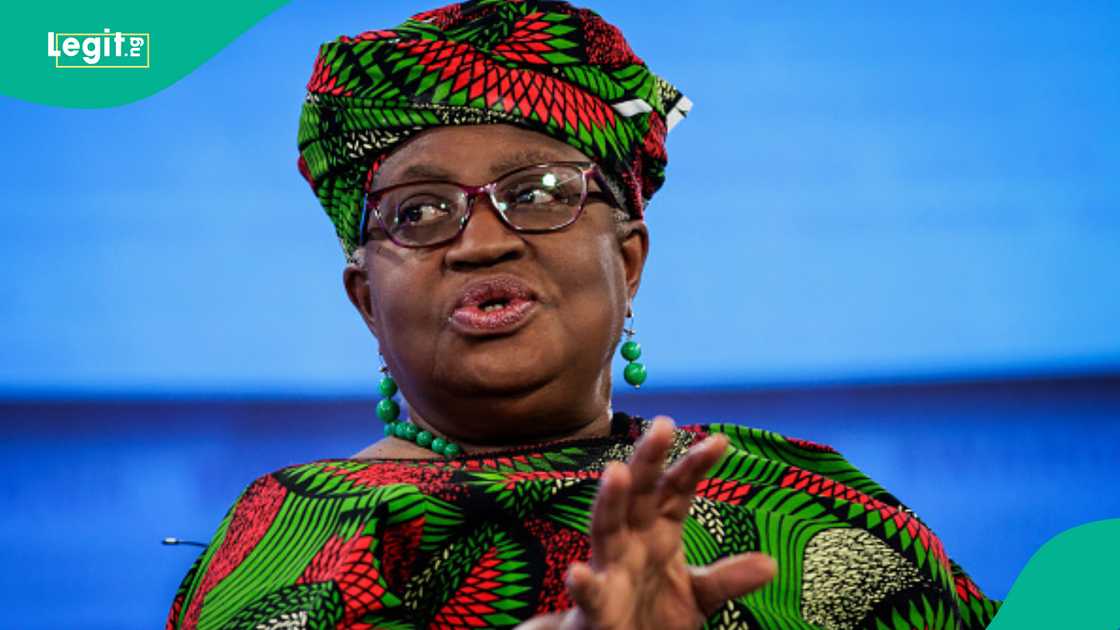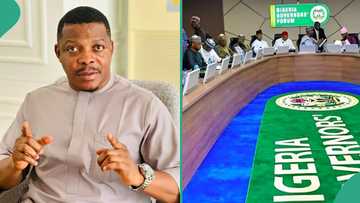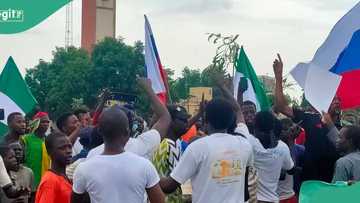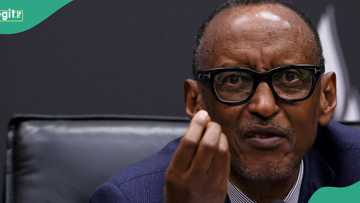Sisterhood in Politics: How Women Leaders in Nigeria Overcome Barriers Through Solidarity
- Nigerian women leaders are making strides in the country's political landscape but face challenges, highlighting the importance of supportive networks
- The Nigerian Women Trust Fund (NWTF) is a crucial example of such a network, providing resources, mentorship, and solidarity to help women overcome systemic barriers
- Senator Stella Oduah and Dr Ngozi Okonjo-Iweala, two prominent Nigerian politicians, credit supportive networks with helping them overcome significant hurdles in their careers
Don't miss out! Join Legit.ng's Sports News channel on WhatsApp now!
Abuja, FCT - In Nigeria, a nation with a dynamic and rapidly evolving political landscape, the rise of women leaders represents a significant shift towards greater inclusivity and representation.
Yet, achieving these milestones is not without its challenges. The importance of supportive networks for women in politics has never been more evident, as demonstrated by the growing impact of sisterhood among Nigerian women leaders. These networks are instrumental in overcoming systemic barriers and fostering a more equitable political environment.

Source: Getty Images
Historically, Nigerian politics has been dominated by men, with women often facing numerous obstacles that hinder their participation and effectiveness.
These barriers include gender bias, cultural stereotypes, and limited access to resources and political platforms. To counteract these challenges, a strong support network is crucial—one that offers mentorship, resources, and solidarity.
PAY ATTENTION: Share your outstanding story with our editors! Please reach us through info@corp.legit.ng!
One prominent example of such a supportive network is the Nigerian Women Trust Fund (NWTF). Established in 2011, the NWTF aims to institutionalise access to resources for women towards a balanced representation in leadership and governance in Nigeria through five thematic areas - Grant Making and Fundraising, Gender Advocacy, Leadership Development, and Research & Information. This organisation is a testament to the power of collective action and solidarity among women striving for political change.
The NWTF's initiatives are multifaceted. They range from offering resources to women candidates, thereby alleviating the economic burden of campaigning, to providing training workshops that equip women with essential political skills. Additionally, NWTF advocates for policy reforms that promote gender equality and create more political opportunities for women.

Read also
“Hold governors accountable”: Amid pressure on Tinubu, PDP chieftain Okai sends key message to Nigerians
A key element of NWTF's approach is its focus on building a network of women leaders. The organisation creates a support system to offer guidance and encouragement by fostering connections among female politicians and aspiring leaders. This network helps women navigate the often-turbulent waters of politics, providing them a platform to share experiences and strategies.
Oduah, Okonjo-Iweala share experiences
Nigerian politicians like Senator Stella Oduah and Dr. Ngozi Okonjo-Iweala's experiences illustrate the importance of these networks. Both women have leveraged their networks to overcome significant hurdles in their political careers.
Senator Oduah, who has held various positions, including minister of aviation, credits her success partly to the support and mentorship she received from fellow women in politics.
"The sisterhood among Nigerian women leaders has been incredibly empowering," Oduah said.
"It provides a critical support system that helps women like me face the unique challenges of political life."
Similarly, Dr Okonjo-Iweala, the former finance minister and current director-general of the World Trade Organization, highlights the role of networks in her career.

Read also
EndBadGovernance protest: Security expert explains "dangerous" undertones of waving Russian flags
"Supportive networks have been vital in my journey," she notes.
"They have not only provided practical assistance, but also a sense of solidarity that is invaluable in a male-dominated field."
2023 elections: How NWTF supported women
Notably, the Nigerian Women Trust Fund supported female politicians during the 2023 general election, promoting inclusive governance and the representation of women in governance in Nigeria.
Female candidates like Senator Ireti Kinjigbe, representing FCT, Hon. Maria Edeko, Deputy Speaker of Edo House of Assembly, Engr. Roseline Ada Chenge Benue Governorship Candidate, Hon. Tolulope Akande-Sadipe Member representing Oluyole Federal Constituency, Maryam Aliyu House of Assembly candidate in Jigawa, were among other female candidates who received either material or media visibility support from the NWTF.
The impact of supportive networks extends beyond individual success stories. By working together, women can drive systemic change and advocate for policies that address their specific needs and challenges.
For instance, NWTF's advocacy efforts have contributed to legislative reforms to increase women's representation in political offices. Such changes are crucial for creating a more inclusive political environment where diverse voices can contribute to decision-making.
The success of these networks also underscores the broader implications for political participation. When women support each other, they can collectively challenge and dismantle barriers that inhibit their participation. This solidarity not only enhances the effectiveness of individual leaders but also strengthens the overall political system by ensuring a more diverse and representative leadership.
In addition to formal organisations like NWTF, informal networks and grassroots movements also play a significant role. Community-based initiatives and local women's groups provide a foundation of support and advocacy that is crucial for fostering political engagement.
These grassroots networks often serve as the first point of contact for women interested in politics, offering encouragement and practical support that can make a significant difference.

Read also
Rwanda govt takes action, shuts down over 5000 churches in nationwide crackdown, details emerge
The importance of supportive networks for women leaders in Nigerian politics cannot be overstated. Organisations like the Nigeria Women Trust Fund have demonstrated how collective action and solidarity can help overcome systemic barriers and drive meaningful change.
As more women come together to support each other, the political landscape in Nigeria—and beyond—continues to evolve toward greater inclusivity and representation. The sisterhood among women leaders empowers individuals and contributes to a more equitable and effective political system, reflecting the transformative power of solidarity in pursuing gender equality.
Why Nigeria needs more women in governance
Earlier, Legit.ng reported that Barr. Juliet Isi Ikhayere, a House of Reps candidate in the 2023 elections, highlighted the need for deliberate efforts to empower women politically, citing societal and cultural barriers as key obstacles.
Also, a former Kaduna senator, Shehu Sani, spoke to Legit.ng on why the Nigerian government has failed to implement the law reserving 35% of public offices for women.
PAY ATTENTION: Unlock the best of Legit.ng on Pinterest! Subscribe now and get your daily inspiration!
Source: Legit.ng




